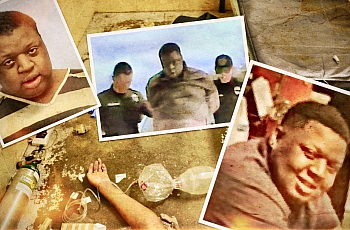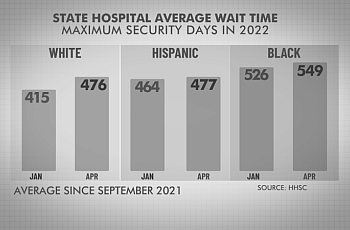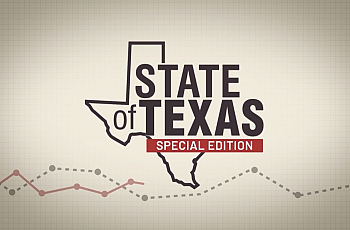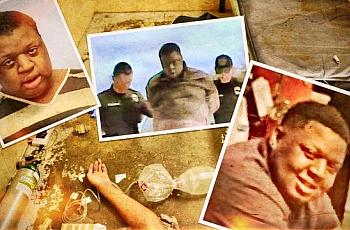
Josh Hinkle
Director of Investigations & Innovation

Director of Investigations & Innovation
Josh Hinkle is KXAN’s Director of Investigations & Innovation, leading the station’s duPont and IRE Award-winning investigative team on multiple platforms. He also leads KXAN’s political coverage as the executive producer and host of “State of Texas,” a weekly program focused on the Texas Legislature and elections, seen in 14 markets statewide. His work on the show has been honored three times with the national Walter Cronkite Award for Excellence in Television Political Journalism in 2015 for coverage of the women’s health debate, in 2017 for an exposé on border security funding, and in 2019 for an investigation into financial questions surrounding Texas’ oil and gas regulators. The show also earned seven consecutive Emmys for political program. In 2018, the Society of Professional Journalists selected “Fallen,” an investigative documentary Josh produced about fatal police shootings and officers’ mental health training, as the recipient of the national Sigma Delta Chi Award for Best Documentary. The same year, “DENIED,” an investigative project he produced about police transparency during in-custody death cases, won an Emmy for investigative series. In 2019, he launched the station’s first podcast series, “Catalyst,” which accompanies the multi-platform investigations “Mayberry Texas” about flaws in the state’s missing persons system, “A History of Mass Violence” about four decades of mass shootings in Texas, and “Dead & Undone” about people dying in police custody. “Mayberry Texas” was also a national finalist for an Online Journalism Award and Emmy winner for journalistic enterprise in 2019. The inaugural season of “Catalyst” won a National Edward R. Murrow Award in the podcast category in 2020, while a collection of “KXAN Investigates” digital projects Josh led also won a national Murrow in the multimedia category that same year. In 2020, Josh and his team also debuted a digital-first investigation called “Locked in Limbo,” which highlights mental competency challenges among Texas inmates. It was honored with two Emmys that year for investigative series and journalistic enterprise. In addition to its own podcast season, that project featured a solutions journalism approach to storytelling – a concept Josh has helped implement at KXAN and Nexstar through initiatives like 2019’s “Save Our Students: Solutions for Wellness & Safety” – which was the national recipient of Mental Health America’s Media Award and was a finalist for the National Association of Broadcasters Leadership Foundation’s Service to America Award – and 2020’s “Pandemic PASS or FAIL: Solutions for Education Equity” – a nationwide project focused on the coronavirus and its disproportionate impact on some students. Josh was named Reporter of the Year by the Texas Associated Press Broadcasters in both 2012 and 2013 and also earned an Emmy as Best General Assignment/Spot News Reporter in Texas. Before coming to Austin, Josh worked as a reporter, anchor and producer in Cedar Rapids, Iowa; Columbia, Missouri; and Oklahoma City. In his career, he has received multiple Edward R. Murrow Awards and Emmys, plus several other honors from the Headliners Foundation of Texas, Freedom of Information Foundation of Texas, State Bar of Texas, Texas State Teachers Association, Texas Medical Association, Texas Associated Press Broadcasters, Iowa Associated Press, Iowa Broadcast News Association, Missouri Broadcasters Association, Society of Professional Journalists, Suicide Awareness Voices of Education, and National Alliance on Mental Illness. He earned his bachelor’s degree in journalism and Spanish from Oklahoma State University, then his masters in journalism and public policy from the University of Missouri. Josh teaches broadcast journalism at St. Edward’s University in Austin. He has also guest-lectured at the University of Texas and the University of Missouri, in addition to hosting multi-platform, investigative and political coverage workshops for the Texas Association of Broadcasters. He has also spoken at conferences for both the Investigative Reporters & Editors organization, the National Institute for Computer-Assisted Reporting, the National Press Photographers Association and the Radio Television Digital News Association. Originally from Oklahoma, Josh loves spending time with friends and family. When he is free, he enjoys watching movies, traveling and exploring the Austin area with his dog, Betty Blue.
Dozens of mentally incompetent men and women have died awaiting placement in a state hospital, and thousands more have been left for months in jail waiting for a state hospital bed.
As the waitlist for a state hospital bed in Texas continues to grow, mental health leaders remain dedicated to the widespread adoption of a strategy known as “Eliminate the Wait.”
New details revealed about a fatal incident within Texas’ understaffed state hospital system, where little information is made public about patients — even when they die.
If Adan Castaneda were charged with a crime and found mentally incompetent to stand trial in October 2022, he would be court ordered to a state mental hospital and stuck in jail for about two years before a hospital bed would become available.

This project was supported by the USC Annenberg Center for Health Journalism....

State data show a record number of people experiencing a mental health crisis are waiting in jails for beds in state hospitals that don’t have enough staff to operate at capacity.
How two reporters laid bare chronic problems in Texas jails, where inmates with mental health needs languish and die at alarming rates.

In recent years, there have been efforts to increase other competency restoration alternatives – like jail-based or outpatient methods – but for some people, those options are not always available.

“They often refer to us as a restorative justice court, where we focus on assisting repeat offenders and connecting them to services so that those repetitive offenses stop,” said the court's administrator.

In Texas, those charged with crimes and found mentally incompetent are entitled to treatment at a state hospital before returning to jail and standing trial. The failing system waitlists hundreds. Sometimes they die sooner than receiving treatment.